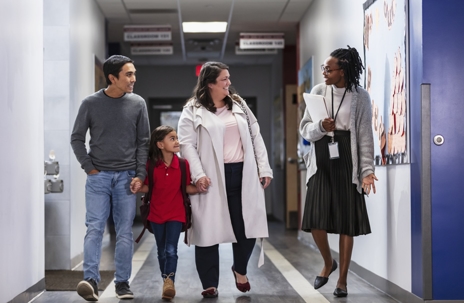Navigating parent-teacher conferences as co-parents requires careful planning and clear communication. Successful collaboration during these meetings strengthens your child's educational foundation and demonstrates unified support for their academic journey.
Understanding the Dynamics of Co-Parenting in Parent-Teacher Conferences
Defining Co-Parenting and Its Importance in Education
Co-parenting involves both parents actively participating in their child's education despite personal differences. When co-parents work together on educational matters, children experience increased academic success and improved emotional well-being. This collaborative approach creates consistency and stability that benefits the child's overall development.
The Role of Consistent Communication Between Co-Parents
Clear communication between co-parents ensures consistent messages to teachers and prevents children from experiencing conflicting expectations. Shared digital calendars and co-parenting apps help both parents stay informed about important dates and academic progress. These tools enable proactive planning and reduce miscommunication that could affect your child custody arrangements.
Pre-Conference Planning: Building a Collaborative Strategy
Setting Shared Goals and Expectations for the Conference
Co-parents should align their objectives before attending conferences to present a unified approach to their child's education. Joint meetings allow both parents to voice concerns and draft key discussion points for teachers. This preparation prevents misunderstandings and ensures both perspectives are represented during the conference.
Preparing Documentation and Questions in Advance
Gathering relevant materials like report cards, progress reports, and teacher correspondence streamlines the conference discussion. Planning questions collectively ensures both parents' concerns are addressed during the meeting. This comprehensive preparation reduces stress and maximizes outcomes for everyone involved.
Effective Participation During the Conference
Presenting a United Front in Front of Teachers
Co-parents should demonstrate unity and solidarity during conferences to create a positive environment for collaboration with educators. Sitting side by side and maintaining respectful body language communicates commitment to the child's education. Any disagreements should be addressed privately after the meeting to maintain a professional atmosphere.
Engaging in Active Listening and Constructive Dialogue
Active listening involves focusing on the teacher's insights without interrupting or becoming defensive. Repeating back what educators communicate helps confirm understanding and shows respect for their expertise. This approach builds trust and facilitates productive dialogue that benefits your child's educational experience.
Post-Conference Follow-Up and Continuous Collaboration
Developing a Plan of Action Based on Conference Outcomes
After the conference, co-parents should create a clear action plan based on the feedback received from teachers. This plan should include specific steps both parents will take to support their child's continued progress. Regular evaluation of this plan ensures accountability and sustained involvement in the child's education.
Utilizing Regular Check-Ins to Monitor Progress
Regular check-ins between co-parents help assess the effectiveness of support strategies and maintain ongoing collaboration. Monthly feedback sessions allow parents to track milestones and adjust approaches as needed. These meetings ensure communication remains open and focused on the child's best interests.
Navigating Common Challenges in Co-Parenting Conferences
Managing Conflicts and Disagreements Constructively
Co-parenting conferences may involve conflicts that require constructive resolution strategies focused on the child's best interests. Compromise and finding common ground help create solutions that support the child's academic and emotional well-being. External support or counseling can provide neutral mediation when needed.
Handling Varied Parenting Styles and Educational Perspectives
Different parenting styles and educational perspectives can be reconciled through empathy and understanding. Respecting these differences creates a more comprehensive approach to the child's education. When fundamental disparities exist, family law professionals can help establish frameworks that work for both parents.
Essential Tips for Successful Co-Parenting Conferences
- Schedule conferences at times convenient for both parents
- Agree on transportation and pickup arrangements beforehand
- Prepare a shared list of questions and concerns
- Bring copies of all relevant documents for both parents
- Establish ground rules for respectful communication
- Focus discussions on the child's needs and progress
- Plan follow-up meetings to review action items
- Consider involving a neutral third party if needed
Family Law Support in Denton
Co-parenting conferences can be challenging, especially when navigating complex family law matters. At Burrows Law Group, our experienced family law attorneys understand the intricacies of child custody arrangements and can help you establish effective co-parenting strategies. Contact us at (972) 236-7798 or through our online contact form to schedule your consultation today.

